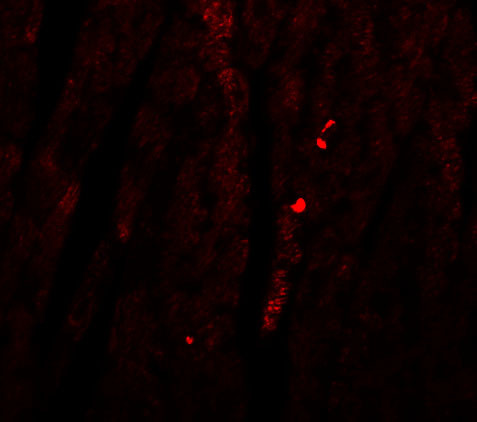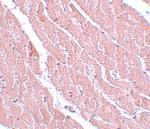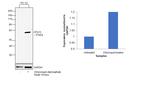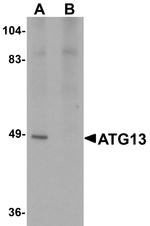Search Thermo Fisher Scientific
Product Details
PA5-20999
Species Reactivity
Host/Isotype
Class
Type
Immunogen
Conjugate
Form
Concentration
Purification
Storage buffer
Contains
Storage conditions
Shipping conditions
RRID
Product Specific Information
A suggested positive control is rat heart tissue lysate.
PA5-20999 can be used with blocking peptide PEP-1113.
Target Information
Autophagy, the process of bulk degradation of cellular proteins through an autophagosomic-lysosomal pathway is important for normal growth control and may be defective in tumor cells. It is involved in the preservation of cellular nutrients under starvation conditions as well as the normal turnover of cytosolic components. This process is negatively regulated by TOR (Target of rapamycin) through phosphorylation of autophagy protein ATG1. ATG13 forms a complex with ULK1 and ULK2, the mammalian homologs of ATG1, and with FIP200. This complex is a target of TOR phosphorylation under normal conditions; inhibition of TOR by rapamycin or leucine deprivation leads to dephosphorylation of ATG13, ULK1 and ULK2, which then leads to autophagy. Knockdown of ATG13 inhibits autophagosome formation.
For Research Use Only. Not for use in diagnostic procedures. Not for resale without express authorization.
References (0)
Bioinformatics
Protein Aliases: ATG13 autophagy related 13 homolog; Autophagy-related protein 13; FLJ20698; harbinger transposase derived 1; OTTHUMP00000233321; OTTHUMP00000233322; OTTHUMP00000233323; OTTHUMP00000233324; OTTHUMP00000233325; OTTHUMP00000233326
Gene Aliases: 1110053A20Rik; ATG13; D2Ertd391e; Harbi1; Harbi1l; KIAA0652; PARATARG8; RGD1310685
UniProt ID: (Human) O75143, (Mouse) Q91YI1
Entrez Gene ID: (Human) 9776, (Mouse) 51897, (Rat) 362164

Performance Guarantee
If an Invitrogen™ antibody doesn't perform as described on our website or datasheet,we'll replace the product at no cost to you, or provide you with a credit for a future purchase.*
Learn more
We're here to help
Get expert recommendations for common problems or connect directly with an on staff expert for technical assistance related to applications, equipment and general product use.
Contact tech support




